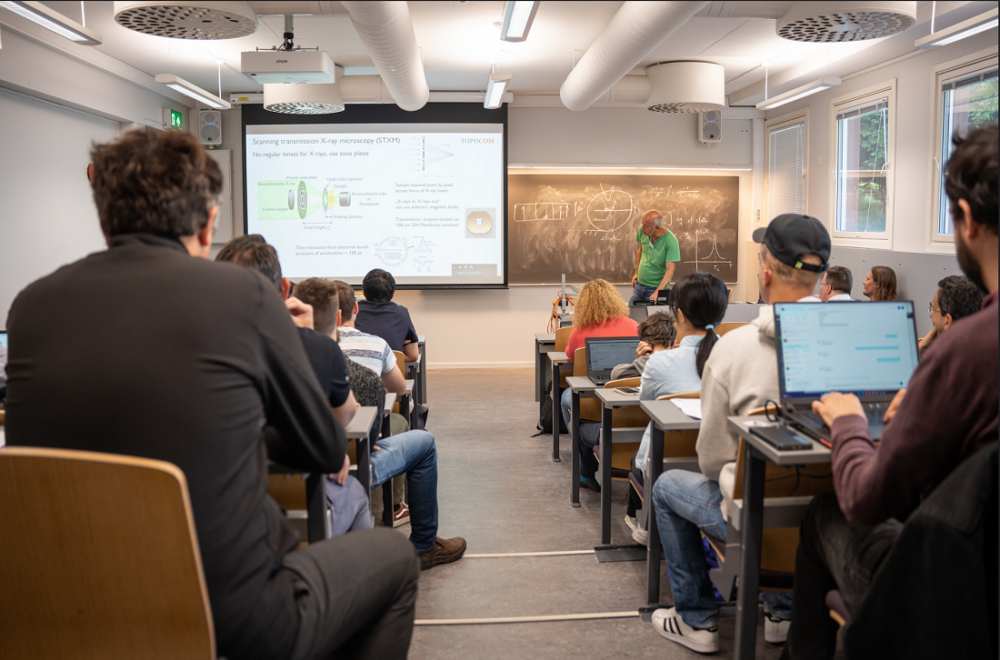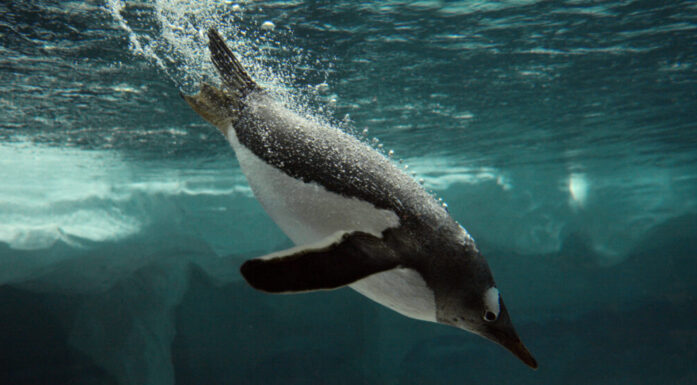Smart collaboration on future technology
TOPOCOM is bringing together leading European research institutions to work on a project that could replace today’s electronics.
NTNU researchers are deeply involved in a European collaboration that can contribute to technology being driven by much more efficient principles than today.
Professor Dennis Meier and Senior Adviser Marianne Lenes at NTNU’s Department of Materials Science and Engineering are head of this collaborative, called the TOPOCOM project.
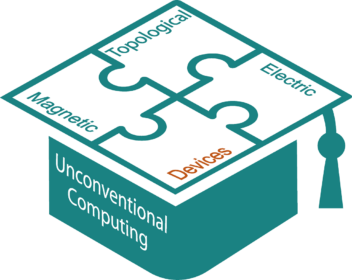
The EU funded doctoral network TOPOCOM explores new possibilities for computing. These are based on topological, electrical and magnetic textures at the nano level. TOPOCOM Logo: amb design & illustrations
“This joint project has been granted almost EUR 2.7 million (approximately NOK 30 million) from the EU to educate doctoral students who will explore the possibilities related to unconventional computing,” Meier said.
The network is highly interdisciplinary, with specialists in everything from physics and materials science to trade and industry.
The project has already allocated funds to educate 11 PhD students who mainly specialize in unconventional computing. These candidates are located at the European research communities and large international companies such as IBM and Infineon that are members of the collaboration.
- You might also like: On the topology of helimagnets and difficult-to-understand things
TOPOCOM welcomes students
A workshop at NTNU arranged by TOPOCOM to welcome all the PhD candidates working on their projects recently brought together a range of prominent players.
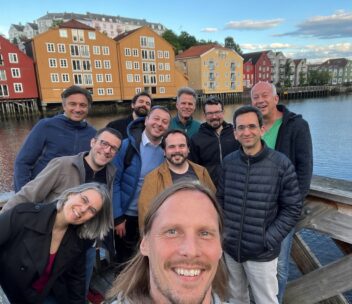
The Topocom group during the meeting in Trondheim. Dennis Meier in the foreground. Photo: Dennis Meier, NTNU
Over the course of five days, the young researchers attended specialized lectures held by international experts. They gained insight into scientific publication and received practical training from various industry partners.
“The network was strengthened during this week-long event. This is exactly what we intended. It will be exciting to see how the team will collaborate on research to find new ways to process data in the coming years, and what the future holds in this field of research,” says Meier.
- You might also like: Atomic-level 3D-models show us how gadgets work
New article in the Nature Reviews Physics journal
A taste of what to expect can be found in the July issue of Nature Reviews Physics.
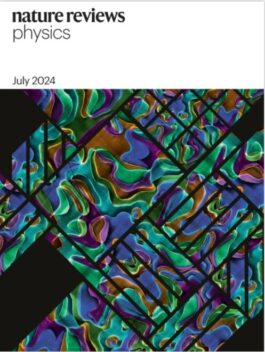
Their article got published in Nature Reviews Physics, with a self-made illustration for the cover. Image: Jakob Schaab, Dennis Meier, amb design & illustrations; Cover design: Susanne Harris.
In a recent perspective article, Meier discusses the possibilities of using magnetic materials and ferroelectricity in the computers of the future with Karin Everschor-Sitte , a professor from the University of Duisburg-Essen (DUE), Katharina Wolk, a PhD candidate from NTNU and Atreya Majumda, a postdoc from DUE. They also made the front cover of the edition with an illustration they created themselves.
The essence of the article is that some of the materials’ properties could potentially be exploited to replace current computer technology with faster and more energy-efficient solutions.
References: Everschor-Sitte, K., Majumdar, A., Wolk, K., Meier, D. Topological magnetic and ferroelectric systems for reservoir computing. Nat Rev Phys (2024). https://doi.org/10.1038/s42254-024-00729-w
